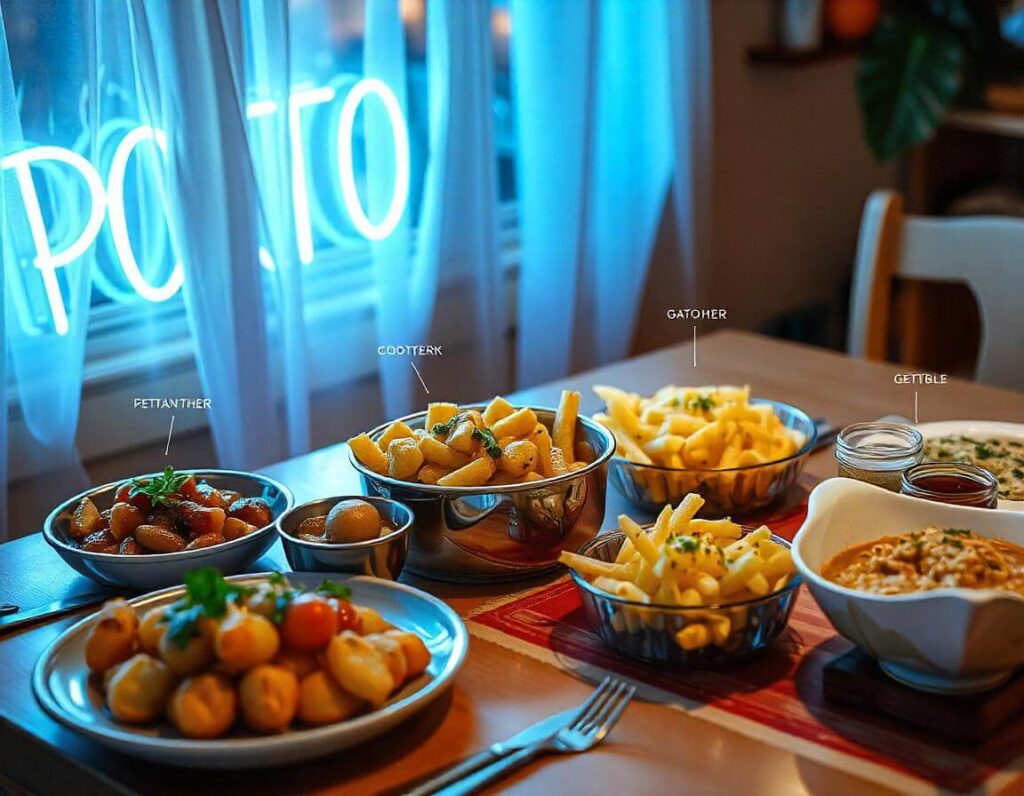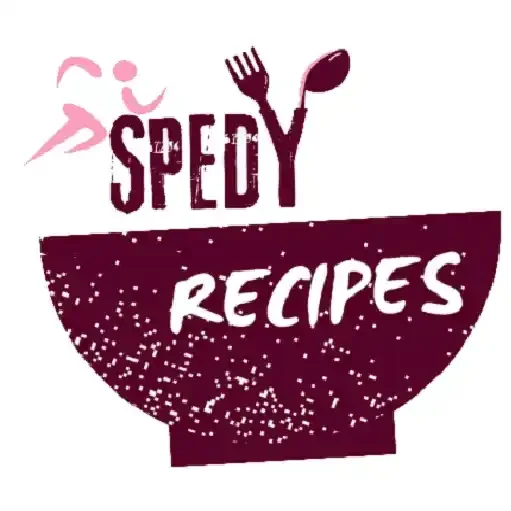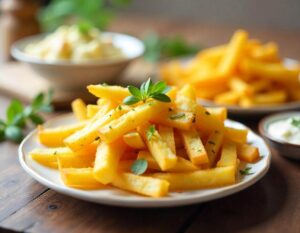Can Potatoes Boost Your Fasting Results? Find Out Now!
Fasting is a practice embraced by people worldwide, whether for religious, health, or lifestyle reasons. And when you’re fasting, making the right food choices is key. One question that pops up often is whether potatoes—a humble yet versatile food—fit into a fasting diet. Let’s dig deep into this starchy staple and see how it measures up for fasting.
Table of Contents
Introduction to Fasting and Nutrition
What Is Fasting and Why Do People Fast?
Fasting might sound fancy, but it’s as old as humanity itself. At its core, fasting means voluntarily abstaining from food (and sometimes drinks) for a specific period. People fast for all sorts of reasons—religious, spiritual, or even for health benefits like weight loss or detoxification. But here’s the thing: fasting isn’t one-size-fits-all. The rules can vary wildly depending on the type of fasting you’re doing.
Importance of Food Choices During Fasting
When you’re fasting, every bite counts. Your body’s like a car that needs premium fuel to run efficiently. Picking foods that provide energy, essential nutrients, and satiety can make or break your fasting experience. The wrong choices could leave you feeling sluggish, hungry, or even lead to overeating when your fast ends. That’s why understanding what works for you is so crucial.
Nutritional Profile of Potatoes
Potatoes may seem like the ultimate comfort food, but their nutritional profile might surprise you.
Macronutrients in Potatoes
Potatoes are primarily made of carbs. In fact, they’re one of the richest sources of starch. But don’t let that scare you! They’re low in fat and offer a modest amount of protein. Here’s a snapshot of the macronutrients in a medium potato (about 150 grams):
| Nutrient | Quantity |
|---|---|
| Calories | ~110 |
| Carbohydrates | ~26 grams |
| Protein | ~2 grams |
| Fat | < 1 gram |
Micronutrients in Potatoes
What really makes potatoes shine are their micronutrients. They’re packed with:
- Vitamin C: Boosts your immune system and keeps your skin glowing.
- Potassium: Helps maintain healthy blood pressure.
- Vitamin B6: Supports brain health and energy production.
- Iron: Essential for carrying oxygen through your blood.
Potatoes also contain antioxidants that protect your cells from damage. Pretty cool for a spud, right?
Health Benefits of Potatoes
Potatoes are more than just comfort food. They’re affordable, filling, and packed with essential nutrients. Their high potassium content can help balance sodium levels, reducing the risk of high blood pressure. Plus, the fiber in their skin supports digestive health.
For more insights on nutrient-dense recipes, check out Fasting with Potatoes: Delicious Recipes, Tips, and FAQs for a Nourishing Fast.
Types of Fasting and Their Guidelines
Intermittent Fasting
Ever heard of the 16:8 method? It’s one of the most popular forms of intermittent fasting, where you eat during an 8-hour window and fast for the other 16. During the eating period, nutrient-dense foods like potatoes can be a good option since they provide lasting energy.
Religious Fasting Practices
From Ramadan to Lent, religious fasting often has specific guidelines. While some fasts require complete abstinence from food during daylight hours, others allow certain types of food. Potatoes, being versatile and easy to prepare, often make it to the approved list for breaking fasts.
Prolonged Fasting
Longer fasts, lasting 24 hours or more, require careful planning. When you break the fast, you need something gentle on the stomach yet nourishing. Potatoes, especially boiled or mashed, can fit the bill perfectly.
Common Questions About Potatoes and Fasting

Can You Eat Potatoes During a Fast?
Here’s where it gets tricky. If you’re on a water-only fast, potatoes are off the table—literally. But for fasts that allow limited food intake (like intermittent fasting), potatoes can be a fantastic addition.
Do Potatoes Break a Fast?
Yes, technically, any calorie-containing food breaks a fast. Potatoes are high in carbs, so they will definitely break a strict fast. However, if your fasting goal is to stabilize blood sugar or promote weight loss, eating a moderate amount of potatoes during your eating window shouldn’t be an issue.
Are Potatoes Suitable for All Types of Fasting?
Not always. For keto-style fasts or those aimed at reducing carb intake, potatoes are a no-go. But for more relaxed fasts or carb-friendly eating windows, potatoes can be a game-changer.
Benefits of Including Potatoes in Fasting Diet
Energy Boost and Satiety
Potatoes are like little energy powerhouses. Thanks to their high carb content, they provide a quick and sustained energy boost, perfect for recharging after a fasting period.
“A single potato can pack enough energy to keep you going for hours—it’s like nature’s battery!”
Rich Source of Vitamins and Minerals
With essential nutrients like vitamin C and potassium, potatoes can help replenish what your body loses during fasting. They’re particularly great if you’re looking for an all-natural way to boost your nutrient intake.
Gluten-Free and Easily Digestible
Potatoes are naturally gluten-free and gentle on the stomach, making them ideal for people with dietary restrictions or sensitive stomachs.
Stay Tuned for Part 2!
This is just the tip of the iceberg! In the next part, we’ll explore potential drawbacks, how to prepare potatoes for fasting, and much more. Ready to learn the full scoop?
Potential Drawbacks of Potatoes While Fasting
While potatoes come with a bundle of benefits, they aren’t without their downsides, especially when consumed inappropriately during fasting periods. Let’s talk about the flipside of this spud story.
High Glycemic Index
One of the main concerns with potatoes is their high glycemic index (GI). Foods with a high GI can cause a quick spike in blood sugar levels, which may not be ideal if you’re fasting to manage blood sugar or insulin sensitivity.
Pro Tip: Choose boiled or baked potatoes over fried versions, as these preparation methods lower the GI and make them less likely to cause rapid sugar spikes.
Risk of Overeating
Let’s be real: potatoes are delicious. But that’s also their Achilles’ heel. If you’re not careful, it’s easy to overeat, especially when they’re mashed, fried, or covered in cheese and butter. Overeating after a fast can undo all the effort you put into fasting.
Lack of Protein
While potatoes provide a decent amount of energy, they’re not a protein powerhouse. If you’re fasting for muscle preservation or growth, you’ll need to pair potatoes with a protein source like eggs, fish, or lentils during your eating window.
Preparation Methods for Potatoes During Fasting

How you prepare your potatoes can make all the difference in whether they’re a fasting-friendly option or not. Let’s break it down:
Boiled Potatoes
Simple and straightforward, boiling potatoes is one of the healthiest ways to prepare them. Boiling retains most of their nutrients and avoids adding unnecessary calories. Plus, boiled potatoes are easy to digest, making them perfect for breaking a fast.
Baked Potatoes
Baking is another great option, especially if you want a little crispiness without frying. A baked potato topped with herbs or a dollop of yogurt is a wholesome and satisfying way to break a fast.
Mashed Potatoes (Without Dairy)
Traditional mashed potatoes are loaded with butter and cream, which can make them calorie-heavy. For a fasting-friendly alternative, skip the dairy and mash them with a bit of vegetable stock or olive oil instead.
“The key to fasting-friendly potatoes is simplicity—ditch the extras and let the natural flavor shine!” 🌟
Alternatives to Potatoes for Fasting
If potatoes aren’t your thing or you’re looking to mix things up, there are plenty of alternatives that work just as well during fasting.
Sweet Potatoes
Sweet potatoes are a fantastic alternative to regular potatoes. They’re rich in fiber and lower on the glycemic index, making them a more stable option for blood sugar levels.
Other Root Vegetables
Root vegetables like carrots, turnips, and parsnips can be excellent substitutes. They’re nutrient-dense, flavorful, and offer a variety of textures to keep your meals interesting.
Grains and Pseudograins
If you want to go beyond root vegetables, quinoa and millet are great options. These grains are high in protein and offer a balanced nutrient profile that complements fasting.
Addressing Common Problems with Potatoes in Fasting
Potatoes can be a helpful ally during fasting, but they come with challenges. Here’s how to tackle the most common ones:
Overcoming Cravings
Potatoes can be addictive, especially in their fried form. To combat cravings, stick to healthier preparations like boiling or baking and pair them with vegetables for a more balanced meal.
Avoiding Weight Gain
If you’re fasting for weight management, portion control is your best friend. Measure your potato servings and avoid high-calorie toppings to keep your intake in check.
Managing Blood Sugar Levels
If you’re worried about blood sugar, pair your potatoes with fiber-rich foods like leafy greens or protein sources like grilled chicken. These combinations slow down digestion and prevent sugar spikes.
Scientific Research on Potatoes and Fasting
Science backs up much of what we’ve discussed. Here are some key takeaways from studies on potatoes and fasting:
- Potatoes for Satiety: Research shows that potatoes rank high on the satiety index, meaning they keep you fuller for longer—perfect for a fasting diet.
- Nutrients in Potatoes: Studies highlight the significant levels of vitamin C and potassium in potatoes, both of which play a crucial role in rehydration and recovery after fasting.
Practical Tips for Using Potatoes in Fasting
Let’s wrap up this section with some actionable tips to make the most of potatoes while fasting:
Portion Control
Even healthy foods can be unhealthy in excess. Stick to one medium potato per meal during your eating window to avoid overloading on carbs.
Pairing Potatoes with Other Foods
Want a balanced meal? Pair potatoes with lean proteins (like grilled chicken or tofu) and veggies. It’s like giving your body a multi-tool for energy and recovery.
Staying Hydrated
Don’t forget: hydration is crucial during fasting. Potatoes contain potassium, which helps balance your electrolytes, but you still need plenty of water to stay hydrated.
Conclusion: Are Potatoes a Good Choice for Fasting?
So, are potatoes fasting-friendly? The short answer: yes—but with caveats. Potatoes are a nutrient-rich, versatile food that can provide energy and satiety. However, preparation methods, portion control, and fasting goals play a huge role in determining if they’re right for you.
“When in doubt, keep it simple. A plain boiled potato can be the unsung hero of your fasting diet.” 🥔✨
Let your fasting journey be as smooth as mashed potatoes! If you’re ready to experiment, add potatoes to your eating window and see how they fit into your routine.
You have not enough Humanizer words left. Upgrade your Surfer plan.
Fasting-Friendly Boiled Potatoes
Equipment
- Medium Pot
- Strainer
Ingredients
Boiled Potatoes
- 4 small potatoes washed and peeled
- 4 cups water for boiling
- 1 tsp salt optional
- 1 tsp olive oil for serving
- 1 tsp chopped parsley for garnish
Instructions
- Fill a medium pot with 4 cups of water and bring to a boil.
- Add the potatoes and a pinch of salt (optional).
- Let the potatoes boil for 15 minutes or until they are soft when pierced with a fork.
- Drain the potatoes and let them cool slightly.
- Drizzle with olive oil and sprinkle chopped parsley before serving.

